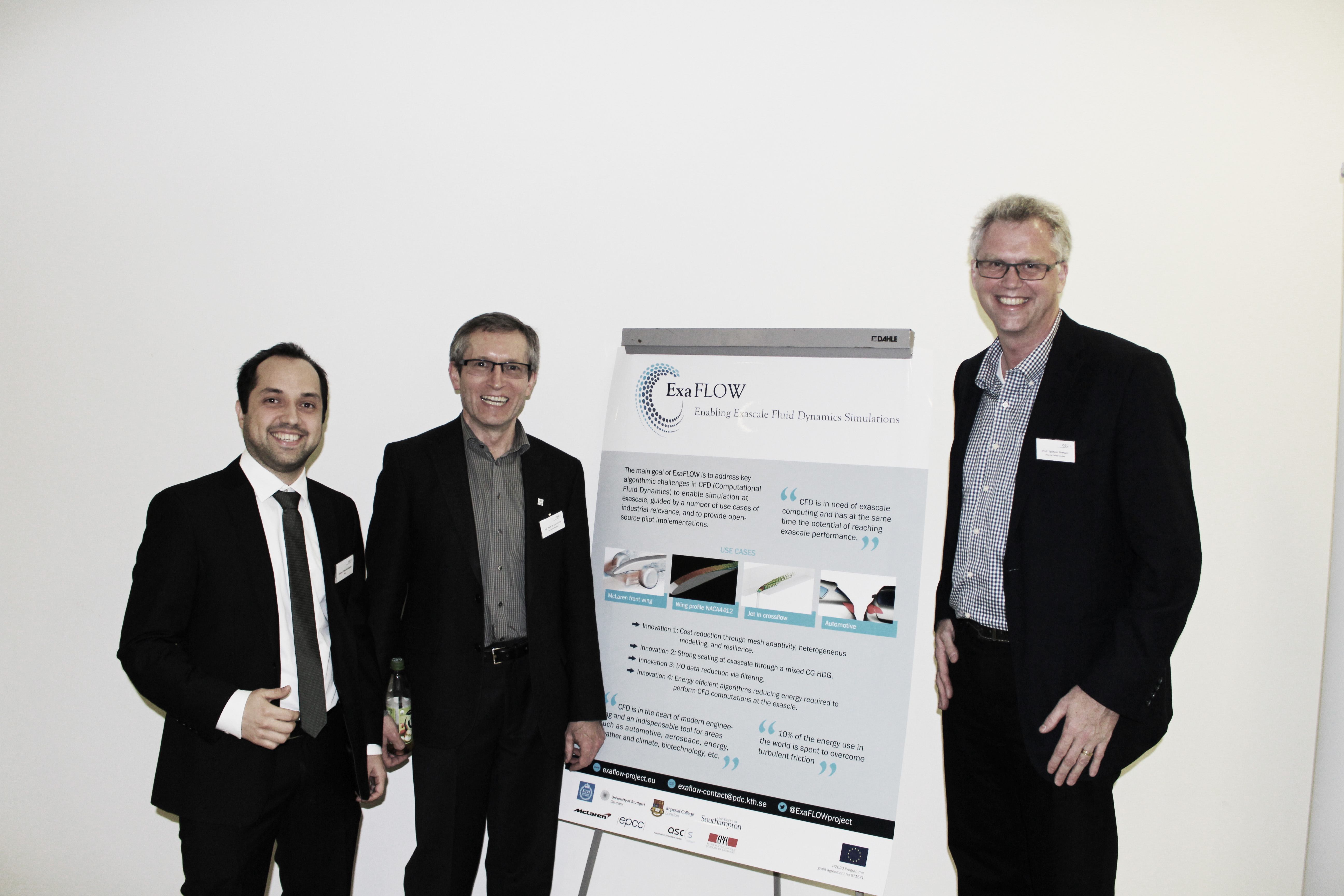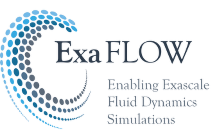As part of the initial dissemination activities of ExaFLOW the Automotive Simulation Center Stuttgart organized on the 23rd of February the exclusive workshop “Simulation Driven Design for Computational Fluid Dynamics” in Leinfelden-Echterdingen (near Stuttgart) in Germany. The workshop was focusing the trend of embedding CFD software into the automotive design process. Amongst other questions it adressed the following:
- Is this trend only a part of the long-lasting frontloading process or is it a paradigm shift? Who are the key roles to enable the change?
- How much methodological knowledge needs an engineer?
- How do we handle the conflict of objectives: the need of less system understanding by using a black box software or solving advanced problems by detailed understanding of solver algorithms?
- Which are important aspects for industrial usage: real-time, automated, easy-to-use, CAD-embedded, bi-directional, multi-physics enabled?
The workshop gave also a state-of-the-art overview and offered space for discussions on the subject of automotive simulation using the HPC technologies. The keynote “Spectral/hp element, scale resolving modelling for high Reynolds number F1 Aerodynamics” was based on developments in ExaFLOW and presented by Prof. Spencer Sherwin from Imperial College London. Another presentation based on findings of ExaFLOW was the one “On the Need for Expertise when Using CFD - a Teacher’s View” given by Prof. Ulrich H. Rist from the Institute of Aerodynamics and Gas Dynamics of University Stuttgart. Carlos Falconi from the Automotive Simulation Center Stuttgart gave a poster presentation about the ExaFLOW project building synergies with the audience.





